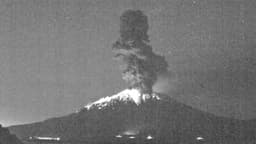Home / Environment / Monkey Mayhem: Japanese Locals Battle Persistent Primate Pests
Monkey Mayhem: Japanese Locals Battle Persistent Primate Pests
13 Nov
Summary
- Monkey population of 600 in Azumino city causes crop damage, home invasions
- "Monkey Chasing Squad" of 50 civil servants tries to herd monkeys back to mountains
- Debate over culling monkeys, with some arguing it could make the problem worse
As of November 13th, 2025, the residents of Azumino, Japan are engaged in an ongoing battle with a persistent primate pest – the Japanese macaque. In the foothills of the Northern Alps, these monkeys have been causing significant problems for local farmers and homeowners, breaking into homes, stealing food, and ruining crops.
The monetary damage caused by the monkeys is estimated at around 15.6 billion yen ($100 million) in 2022, with deer, wild boars, and macaques responsible for about 70% of that. To combat the issue, Azumino city has assembled a "Monkey Chasing Squad" – a team of around 50 part-time civil servants who work to herd the monkeys back into the mountains using GPS trackers, bells, whistles, and walking sticks.
According to the squad's leader, Masaya Miyake, their efforts have been somewhat successful, with the macaques now spending about half their time in the hills and the other half in the villages – an improvement from the previous situation where nearly all the monkeys lived within the town. However, the problem persists, and calls for more drastic measures, such as culling the monkeys, are growing.




